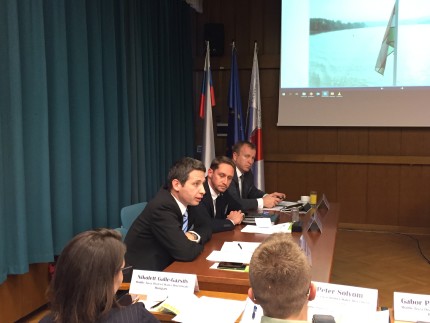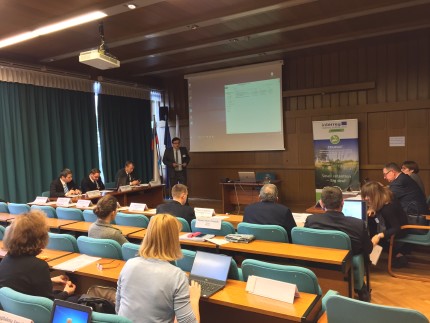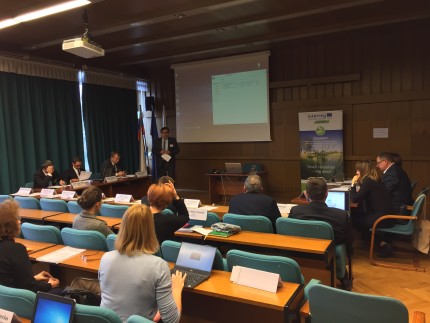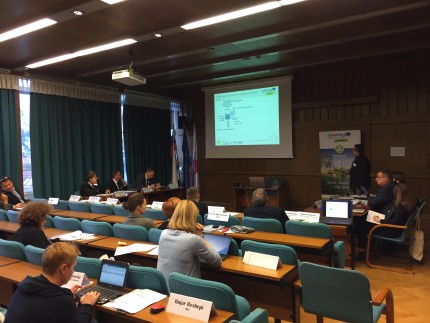The First FramWat Regional Roundtable, Introduced FramWat to High Level Representatives from Croatia, Hungary and Slovenia

The first FramWat Regional Roundtable (RT), organized by The Regional Environmental Center (REC) and hosted by the University of Ljubljana (UL), was held in Ljubljana on November 21st, 2018. The purpose of the RT was to promote the project at high policy level, and to provide opportunity for discussing the regional policy towards the Natural (Small) Water Retention Measures [N(S)WRM]. The first RT gathered high level participants from Slovenia, Croatia and Hungary, namely: Mr. Tomaž Prohinar, Director of the Slovenian Water Agency; Mr. Laszlo Balatonyi, Head of Department within the General Water Management Directorate, Hungary; Mr. Viktor Oroszi, Senior Advisor within the Ministry of Foreign Affairs and Trade of Hungary; Ms. Sandra Sokolić, Head of Department within the Ministry of Environment and Energy of Croatia; Mr. Danko Biondić, Head of Department within the Croatian Waters; and Ms. Dragana Milovanović, Deputy Secretary of the International Sava River Basin Commission Secretariat. Other participants were representatives of Project Partners and Associated Partners – the REC, Warsaw University of Life Science (WULS), Limnos, The Middle Tisza Water Directorate, Global Water Partnership for Central and Easter Europe and the UL.
The meeting started with an introduction to the event by Mr. Danko Aleksic from REC, and an overview of the project by Mr. Tomasz Okruszko from WULS. To further familiarize participants with our project, Mr. Ignacy Kardel from WULS presented one of the main planned output of out project - the Landscape Valorization Method and the GIS Tool.
The second part of the meeting focused on getting input from the high-level participants from the 3 countries. Firstly, they were asked to talk about the current state of N(S)WRM in the context of regional and national policies. Most participants stated that N(S)WRM are not among priorities right now in their respective countries, however they are aware of their importance and there are plans to have them included in the next cycle of River Basin Management Plans (RBMP). They also listed several national and regional projects that are, at some level, related and relevant for N(S)WRM.
To get additional input from the high-level participants, several questions were posed. The first one was related to the best practices on how to get more land to implement N(S)WRM. Most participants stated that there are no official strategies for this particular issue, but measures such as compensation schemes for farmers who apply N(S)WRM could be considered in the future and might lead to more such measures being implemented. Next question was about targeting financial incentives and how and if this is applied in the respective countries. Participants stated that there are no dedicated funds for N(S)WRM, and that water management initiatives are usually financed by water fees. In some instances, it is up to the respective water authorities if they want to use such finances for N(S)WRM or for other purposes (waste water treatment, flood protection).
Successful organization of the RT is very important for further implementation of the project as the RT managed to gather high level representatives from three countries who showed deep understanding of importance of the N(S)WRM and provided significant feedback about present situation and perspectives in this regard. All high-level participants expressed their hope and willingness for continued cooperation in the future, underlining that projects such as FramWat will eventually lead to better integration of the N(S)WRM into national and regional plans and strategies in the future and therefore their implementation as well.



